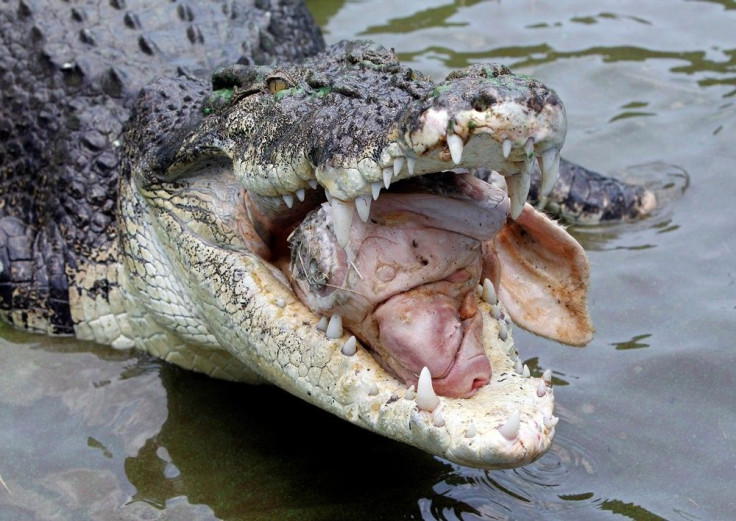Australian scientists discover that crocodiles sleep with one eye

Crocodiles sleep with one eye open so they can immediately respond to threats, prey or other young crocs, reveals a team of Australian scientists.
According to researchers from La Trobe University, who detail their findings in The Journal of Experimental Biology, crocodiles sleep with half of their brain at a time. Some birds and aquatic mammals such as dolphins also do this behaviour, known as unihemispheric sleep. The phenomenon allows animals to keep one eye open and connected to the ‘awake’ side of their brain, while the other eye and other half of their brain are sleeping.
In their study, the team discovered that crocodiles were more inclined to sleep with one eye open when humans were present, and that the open eye was always directed towards the human.
“These findings are really exciting as they are the first of their kind involving crocodilians and may change the way we consider the evolution of sleep. What we think of as ‘normal’ sleep may be more novel than we think,” says lead researcher Michael Kelly from La Trobe's School of Life Sciences.
The team notes their findings enable them to have a better understanding of effective sleep. Kelly’s colleague, Dr John Lesku, says the research is valuable since it is generally believed that the ‘normal’ sleeping behavior refers to shutting down of the whole brain.
“Yet, some birds and aquatic mammals sleep unihemispherically with one eye open. If ultimately crocodilians and other reptiles that have been observed with only one eye closed are likewise sleeping unihemispherically then our whole-brain sleep becomes the evolutionary oddity,” Lesku says.
Birds were first revealed to sleep with one eye open and half of their brain awake in a 1999 study published in the science journal Nature. According to the team who conducted the research, the behaviour allows birds to detect approaching predators while still getting sleep. Dolphins, seals and manatees were also found to sleep with one eye open, the researchers said, but what makes birds unique is that they are able to control it.
The study’s authors believe the research could have some implications for humans, saying that if birds can do it, humans might be able to do it in some form or another. They say there are anecdotal accounts of war veterans who claimed that under extreme stress, they were able to sleep with one eye open. However, researchers have been unable to demonstrate it scientifically because it would involve putting a person under extreme stress.
Contact the writer at feedback@ibtimes.com.au or tell us what you think below.





















